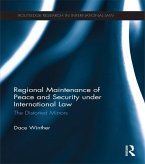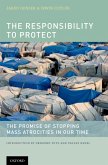In 2021, the International Committee of the Red Cross released its Commentary on the 1949 Geneva Convention Relative to the Treatment of Prisoners of War (POWs). The new document updated the 1960 "Pictet Commentary." As a result, the attention of the law-of-armed-conflict community was refocused on the designation and treatment of POWs. The Lieber Institute for Law and Warfare at West Point launched a project to further examine the subject. The result is this book. Sadly, world events have made that examination especially timely. Unlike the ICRC's updated Commentary, this book is not meant to be a comprehensive treatment of the international law relating to POWs. Rather, it is a collection of capita selecta identified by the contributors as meriting further examination - either because they are unsettled, inadequately addressed in the literature, or operationally problematic. The work is in three parts. Part I examines qualification for POW status. Discussion then moves in Part II to the treatment to which POWs are entitled. Part III concludes with a consideration of the historical relevance of, and perspectives on, the international law governing POWs. As the drafters of the Third Geneva Convention emphasized over seventy years ago, the aim of the law is "to mitigate as far as possible, the inevitable rigours [of a war] and to alleviate the condition of prisoners of war." It is through that lens that scholars and practitioners should consider the rules governing POWs, and with which they should approach this book.
Dieser Download kann aus rechtlichen Gründen nur mit Rechnungsadresse in A, B, BG, CY, CZ, D, DK, EW, E, FIN, F, GR, HR, H, IRL, I, LT, L, LR, M, NL, PL, P, R, S, SLO, SK ausgeliefert werden.









